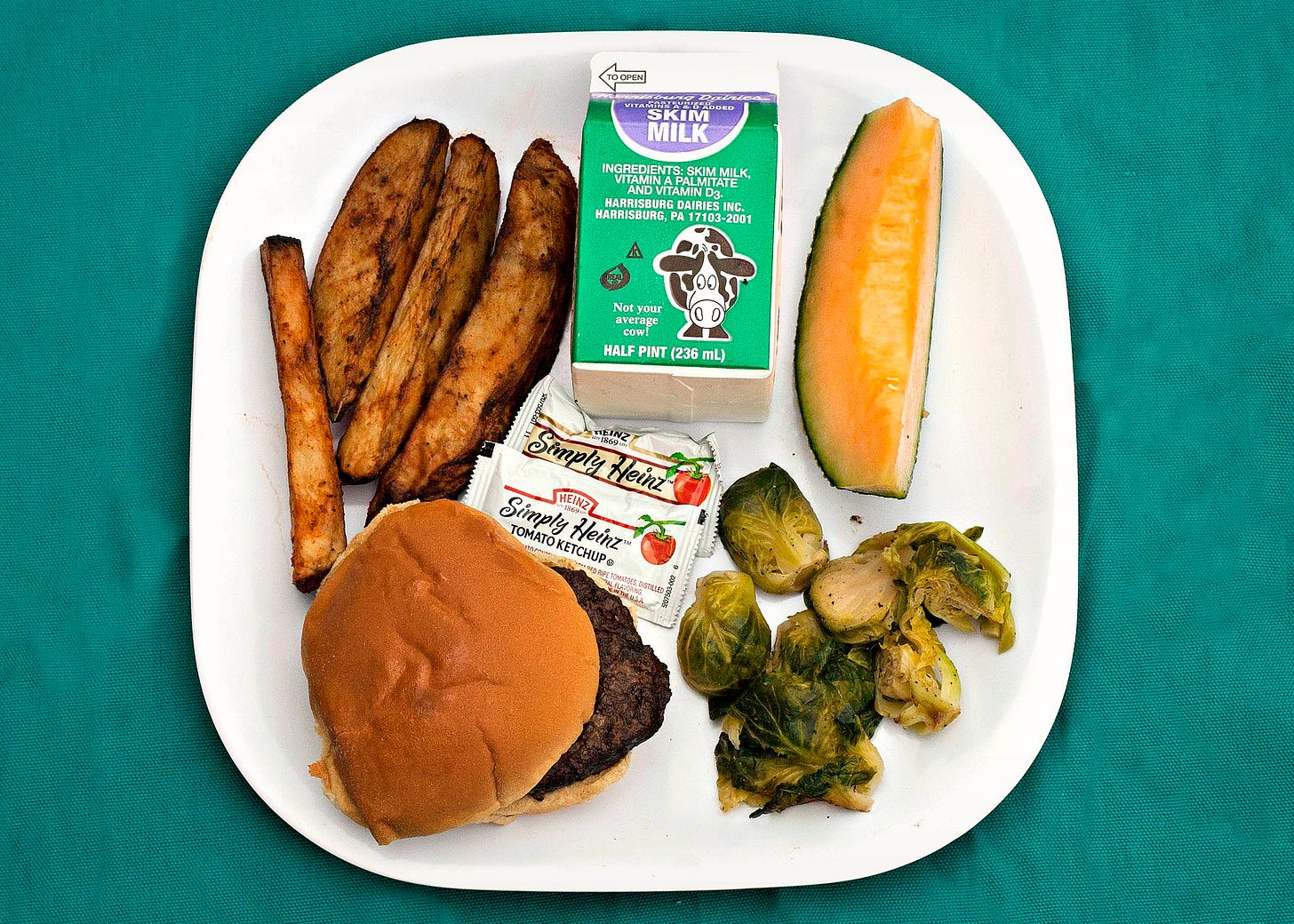Congress Lets School Lunch Program Expire As It Ratchets Up Military Spending
Senate Republicans used the $11 billion programs cost as an excuse.
A portion of monthly subscriptions goes to groups supporting our unhoused friends and neighbors. Please consider subscribing.
Rebecca Wood didn’t realize she was food insecure until she wasn’t anymore. She credits the U.S. Department of Agriculture for that.
Since March 2020, when the pandemic hit, the USDA has issued waivers to expand school lunch programs. This $11 billion program provided a vital lifeline to working families who were struggling to feed their kids during the pandemic, even when schools were out during the summer.
Before the vouchers were issued, Wood struggled paying off her 10-year-old daughter’s school lunch debt.
“Each pay period, I dumped a portion of my paycheck into my daughter Charlie’s school meal account. In doing so, I paid off her debt and added a few more dollars for future meals,” Wood told me. “Within a few days, the account balance was in the negative again. Charlie came home from school on those days and said, ‘Mom, you need to give more money to the cafeteria.’ I felt like we were drowning.”
[Side note: What an absurd concept. “School lunch debt.” The national public school meal debt is $262 million a year. Disgusting.]
During the summer of 2020, 262.7 million meals were served through this program and 190.6 million during the summer of 2021, according to a new report from the No Kid Hungry campaign.
The vouchers loosened restrictions on the otherwise rigid, means-tested program. It waived confusing and burdensome paperwork previously required to verify financial eligibility and also allowed parents to grab meals to-go during the summer.
“We have to eat them there [now],” Wood said. “That means our schedule has to line up with when they are serving, a challenge in a poor household.” She and other parents would also grab meals for kids whose parents were working during the day so they, too, could eat.
But instead of clearing an extremely low bar and extending the food program another year, Congress is poised to let it expire at the end of this month—June 30—after extending it multiple times. No Kid Hungry now estimates kids collectively could miss 95 million summer meals.
Top Republicans in the Senate objected to its extension this time around, using hollow concerns about the program’s cost as as an excuse. Yet, on Thursday, the Senate Armed Services Committee approved an additional $45 billion to be tacked onto President Joe Biden’s military budget request—around $813 billion—made earlier this year. This creates a new national “defense” topline in the Senate of $857 billion. The vote in the Democrat-controlled committee was 23-3.
This prioritization of the military, war, destruction and mass death over helping feed our friends and neighbors—in this instance, we’re talking about children—ultimately reflects both an indifference toward working families in the United States and their material needs not being met as well as an unwavering loyalty to the military industrial complex and its profiteering. There is always money backed by bipartisan support to fund militaristic endeavors but when social safety net programs are up for debate it’s suddenly time to worry about the deficit.
While we’re in a somewhat different place than we were in March 2020, the economic issues impacting the working class have metastasized. I wrote on Thursday about how, due to Congress allowing the enhanced Child Tax Credit to expire, 90% of families are now struggling to make ends meet and, among them, nearly half of those families include parents who have skipped meals so their kids could eat. The working class is buckling under the weight of record gas prices and inflation on other consumer goods (like food) and 3% lower real hourly wages compared to this time last year.
For many parents, the school lunch program gave them more breathing room. It was a chance to finally start paying off other accumulating debts.
“That extra money I'd save on school lunch could help repair some of the damage from living in poverty,” Wood said. “Like, chip away at credit card debt from prior emergencies, catch up on neglected car maintenance, catch up on health care that was pushed off, and all those other things that pile up on you while you're poor.”
You can call your Senators and tell them you want the school lunch voucher program extended via the US Capitol switchboard at 202-224-3121.
No Kid Hungry can help you find a meal site in your area. Text ‘FOOD’ or ‘COMIDA’ to 304-304 for information.
Update: On Tuesday, a bipartisan group of legislators introduced the “Keep Kids Fed Act” that could extend the waivers through Sept. 30.
“The Keep Kids Fed Act will provide important funding and flexibility for communities to provide children healthy meals this summer and provide support to schools and daycares to respond to supply chain challenges and high food costs for the coming school year,” the legislators said in a statement.
Thank you for reading. If you enjoyed this piece, please share it and leave a comment. And if you’d like to subscribe to this Substack, can do so below. A portion of proceeds from monthly subscriptions goes to groups supporting our unhoused friends and neighbors.
Photo courtesy of DC Central Kitchen/Creative Commons




My kid qualifies for free school lunch anyway, so she qualifies either way, but her friends either slip through the cracks or have overworked parents and they legit don't qualify now, but now skip breakfast (except when my daughter shares). The really nice thing about every single kids getting a free breakfast and lunch at school was that no one was ever singled out. The military funding dwarfing feeding children is filed under "of course", but it was nice for a little while. Add this to things Dems can't brag about.
No surprise. Sadly and sickly, military spending gets them re-elected, not the school lunch program.